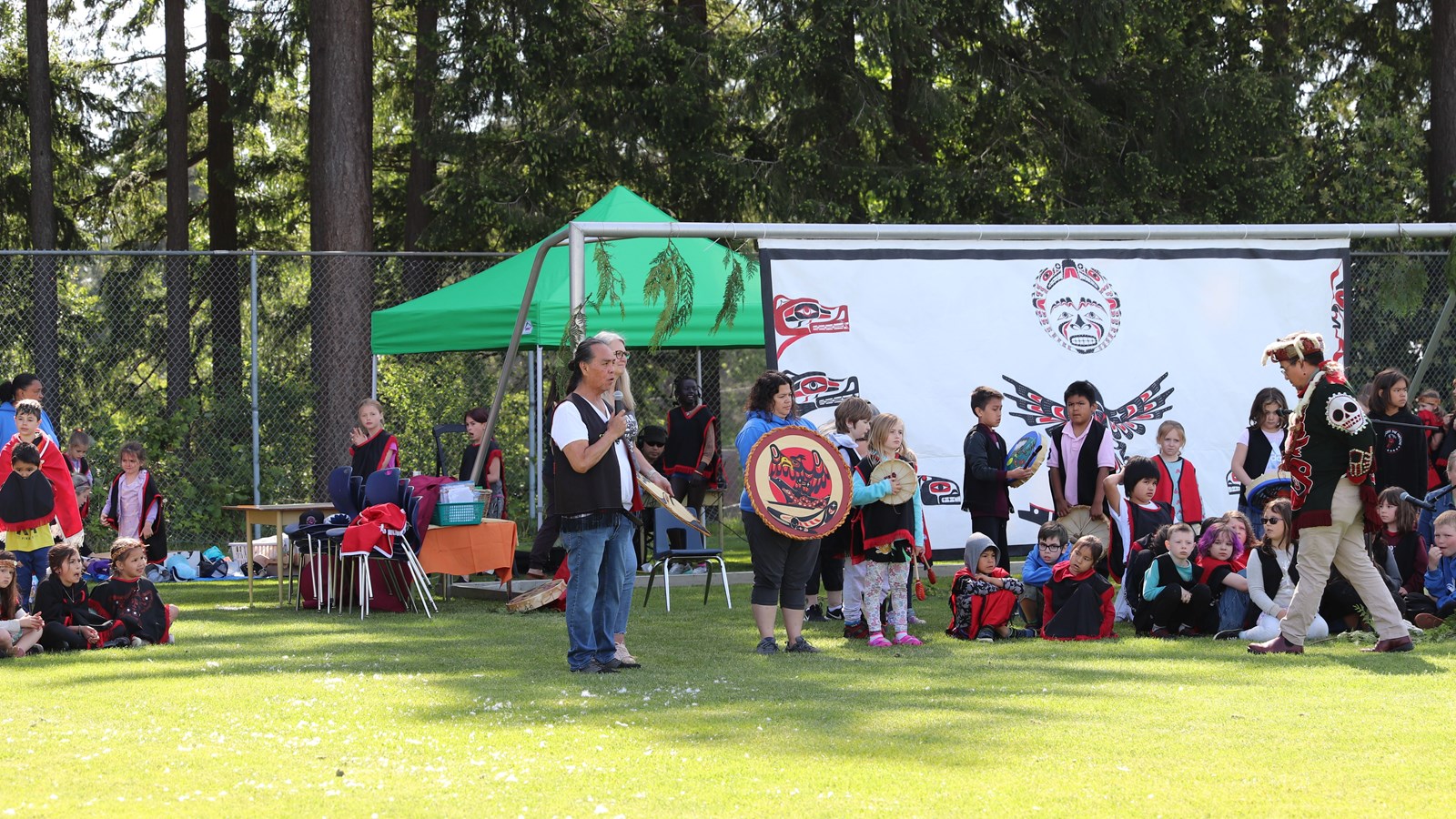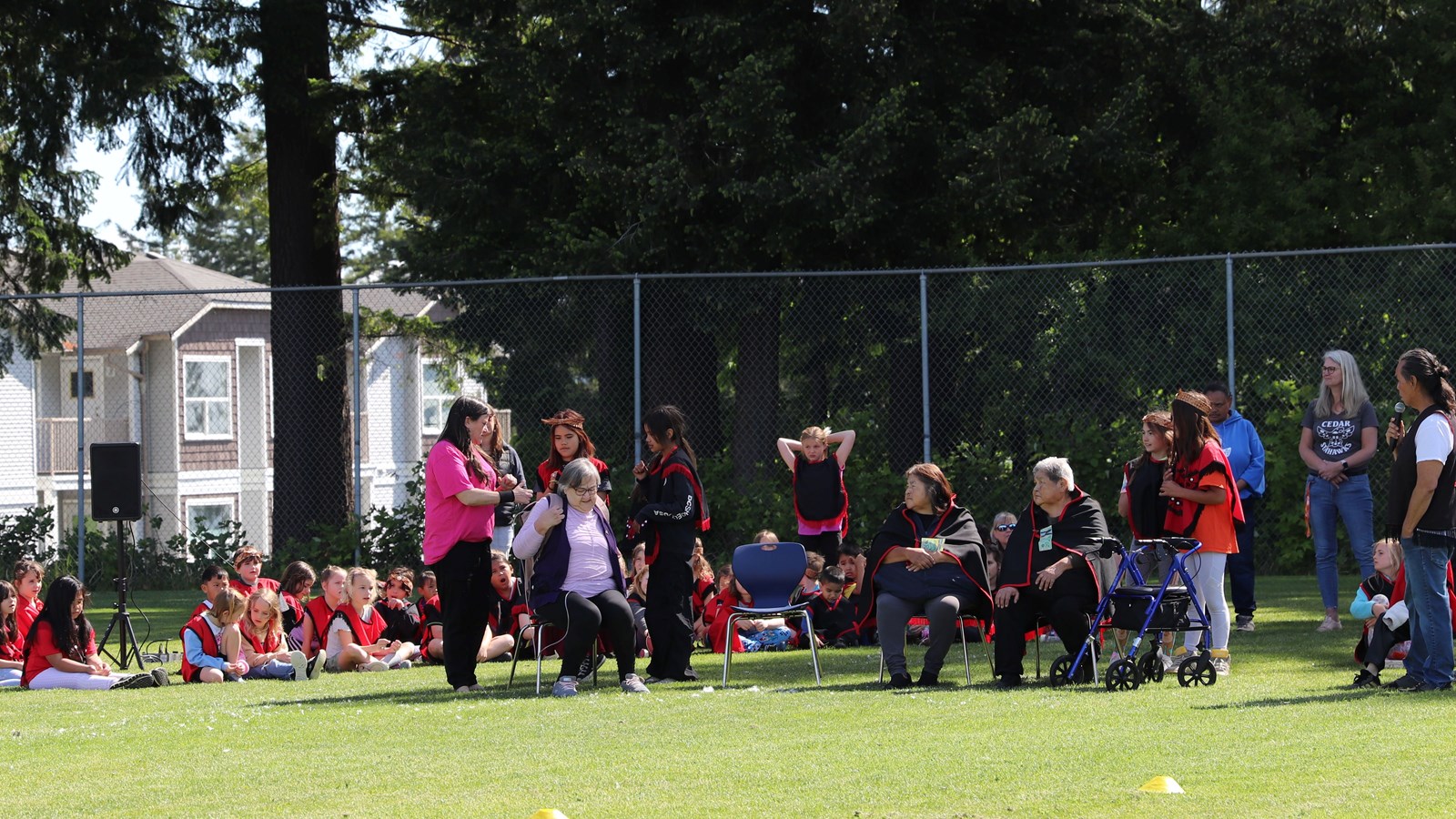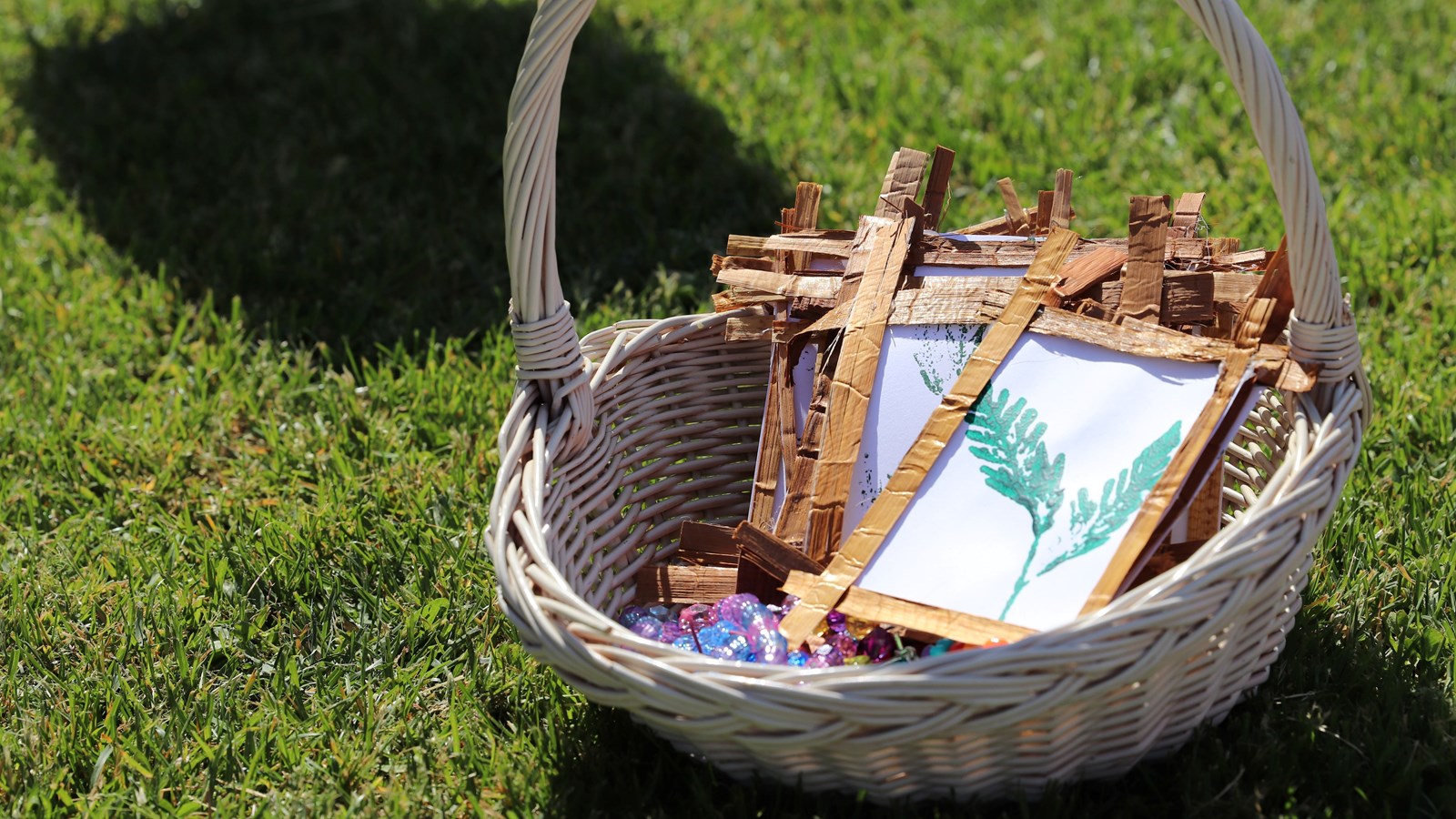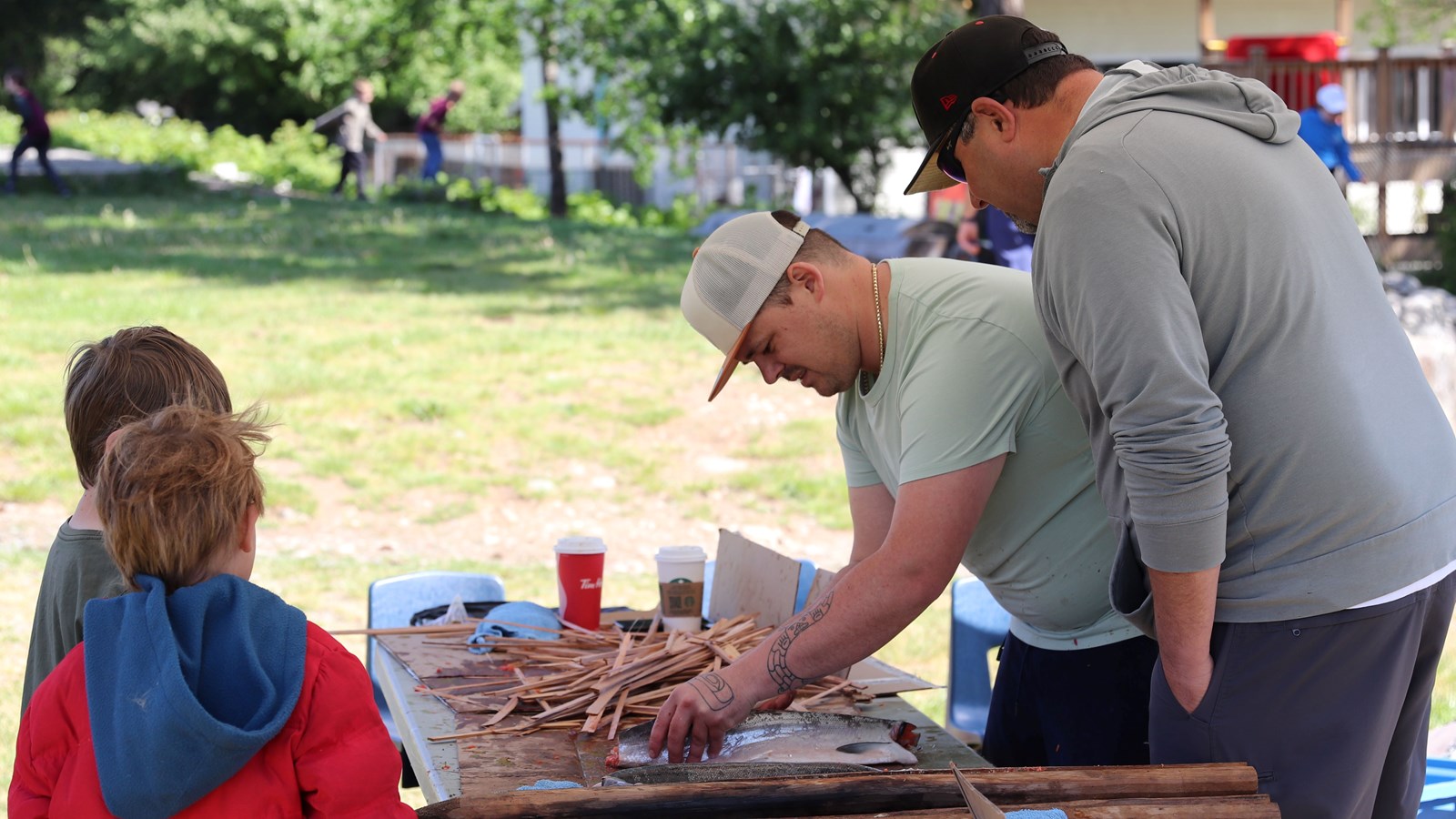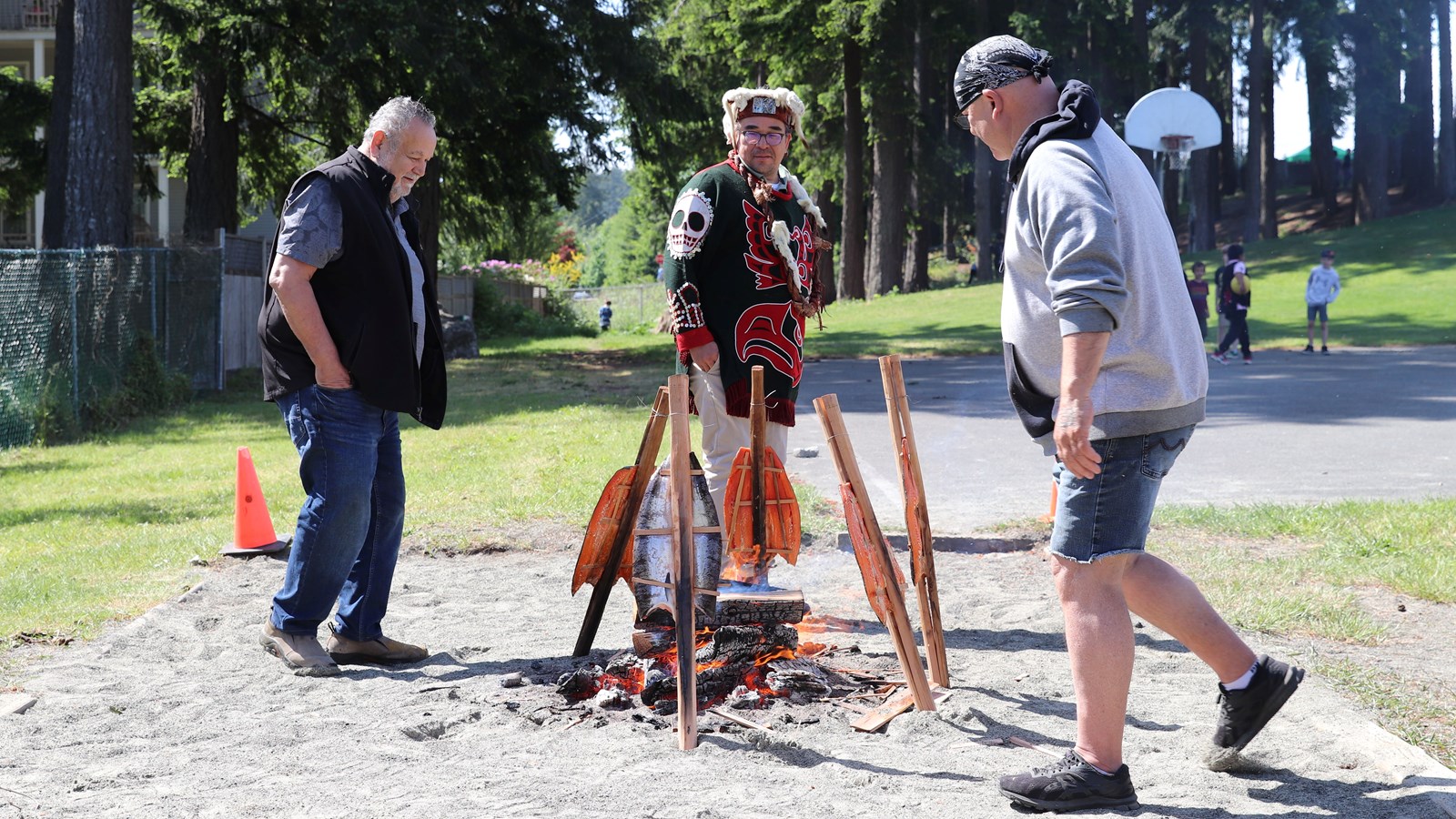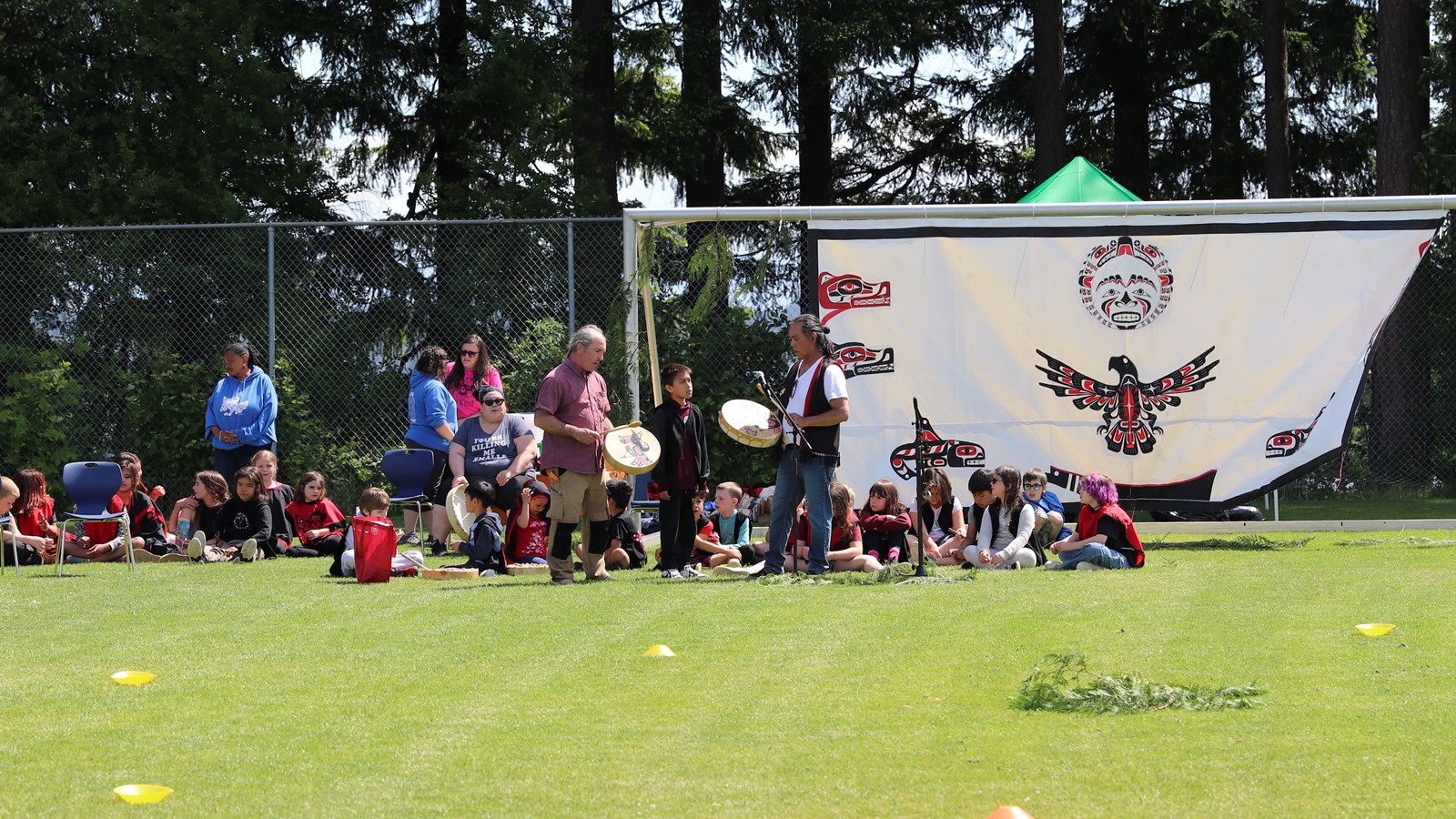Cedar and Penfield Schools Learn Through Play Potlatch
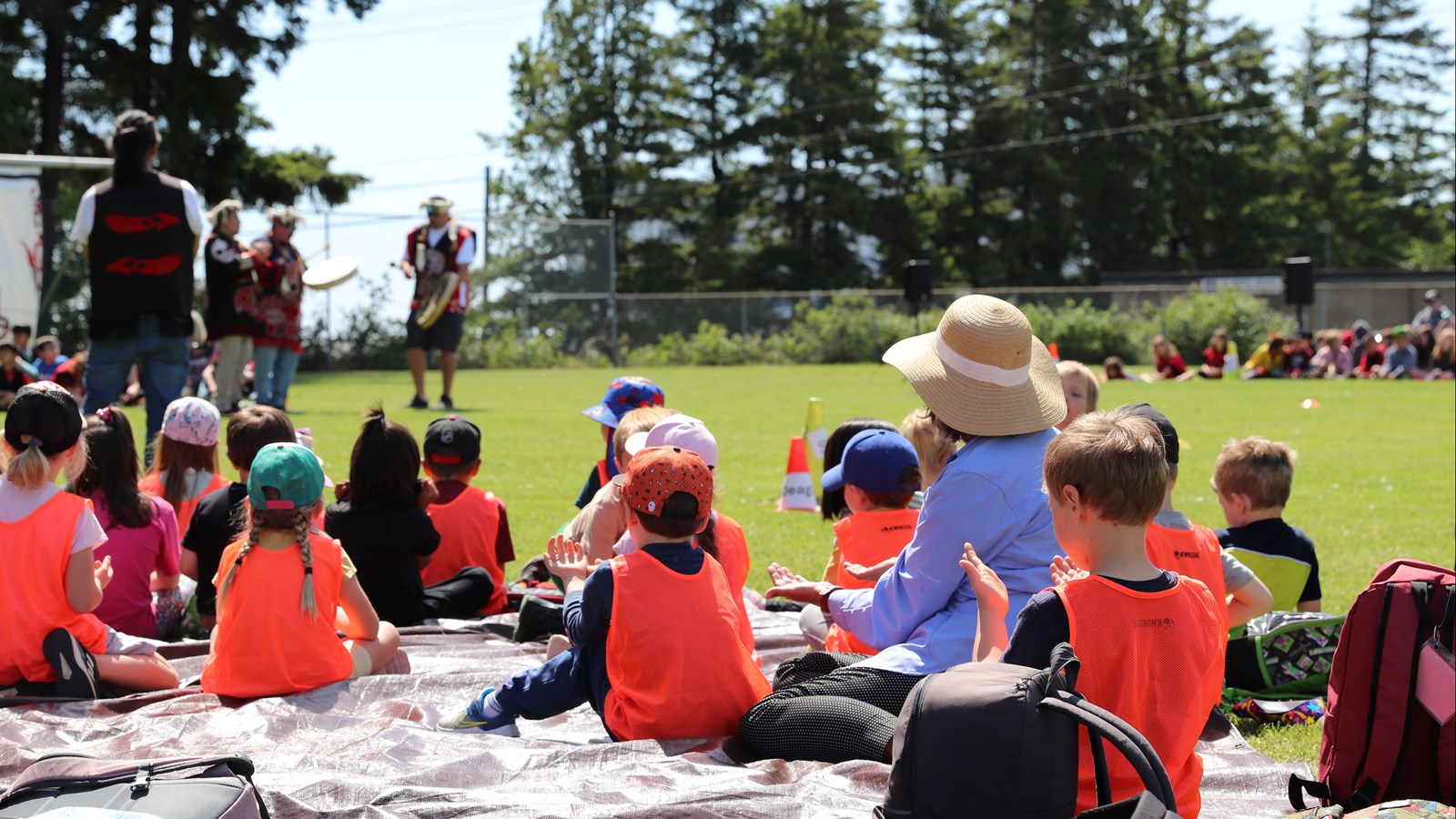
On May 23, Cedar Elementary School hosted a remarkable event that brought together the Penfield and Cedar school communities and marked the culmination of learning throughout the year. This event, named hišuk?iš c?awaak, meaning "we are all one", was the first of its kind in the Campbell River School District. The play potlatch took place at Cedar Elementary and was conducted in the Nuu-Chah-Nulth tradition. The potlatch was led by Qwaya Sam, a knowledge keeper and member of Ahousaht First Nation, with curricular connections supported by the district’s Indigenous Education staff.
Planning for this unique event began over a year ago when Cedar and Penfield Elementary Schools applied for two Art Starts grants in May 2023. By October 2023, preparations were in full swing, including collaboration with knowledge keepers and securing additional support for Carihi Secondary’s media classes to produce a documentary on the play potlatch.
The focus of the Cedar Elementary grant was on building connections, while Penfield’s grant emphasized learning about the cultural significance of cedar and salmon. Students began by exploring what a potlatch is, with Qwaya Sam and other knowledge keepers explaining its meaning and importance in Ahousaht and other local cultures. Lessons were on the themes of hišuk?iš c?awaak (everything is connected) and cultural representation through art and other mediums.
Throughout the school year, students from both schools worked closely with community knowledge keepers to create various gifts to be exchanged during the potlatch. They learned traditional crafts such as cedar weaving with Maggie and Donna Jackson (Kyuquot), making Devil’s Club beaded necklaces with Gina Hunt (Kwakiutl), and crafting cedar paddle pendants with Randy Louie (Klahoose). Qwaya Sam also created a colouring book featuring his designs, and Gloria Cole (Tlowitsis, Tlingit, Kwakiutl, and Haxwamis) guided Penfield students in making regalia.
Penfield students further engaged in creating wooden rounds, learning about the interconnectedness of land, sea, sky, and spirit world through stories shared by Qwaya. They then designed their own wooden rounds based on these elements.
Hereditary Chief Johnathan Henderson opened the play potlatch, welcoming it to take place on Lig??i?dax?? territory, and special presentations included a paddle gifted to Hereditary Chief Max Chickite (We Wai Kai) and a panel to Hereditary Chief Johnathan Henderson (Wei Wai Kum).
The play potlatch saw students present blanket gifts to Elders Maggie Jackson (Kyuquot), Betty Nicolaye (Kyuquot), MaryAnn Barr, and Gloria Cole (Tlowitsis, Tlingit, Kwakiutl, and Haxwamis).
Each class at Cedar and Penfield was paired with a buddy class from the other school, and keeping with potlatch protocol they exchanged gifts that they made throughout the year with the support of the knowledge keepers, such as cedar roses, woven bookmarks, Devil’s Club necklaces, and cedar leaf prints in cedar frames.
A feast of salmon, bannock, and watermelon was enjoyed by all, and student singers and dancers showcased songs they had learned from Qwaya Sam. Songs were also shared by Shawn Decaire (We Wai Kai), Bill Henderson (Wei Wai Kum), and Will Henderson (Wei Wai Kum), Shana Smith (Tlowitsis), and Jake Vermeeren (Cree). Qwaya and his brother Robinson Cook also sang a song in honour of their late mother’s 100th birthday. Anita Buck (Kyuquot) and Sam Mayer (Mowachat/Muchalaht) gifted Cedar students with canned salmon. The day was a powerful embodiment of the spirit of reconciliation, honouring the teachings of ancestors, and celebrating the strength of Indigenous culture and traditions.
With a total of approximately $25,000 in grants from Art Starts, the play potlatch highlighted the importance of cultural continuity through oral traditions and community events. Despite the injustices imposed by the Indian Act, including the historical outlawing of potlatches, these traditions continue to be shared and grow within communities. We are grateful that students and staff had the opportunity to learn about the importance and cultural significance of the potlatch and other Indigenous ways of knowing and being.





